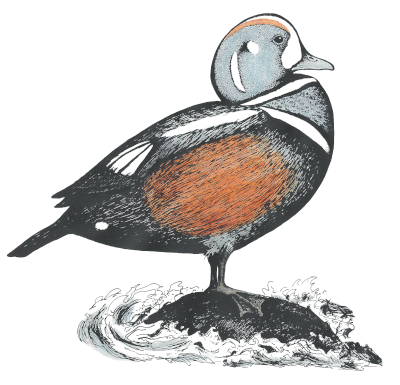
Lamiaceae - mint family
Mount Desert Island is home to 11 species in 9 genera. Click on a link below or scroll down for more information.
Galeopsis (1 species)
Galeopsis tetrahit - brittle-stemmed hemp-nettle (occasional [see note 1 at bottom of page])
Glechoma (1 species)
Glechoma hederacea - Gill-over-the-ground (?)
Lycopus (2 species)
Lycopus americanus - American water-horehound (occasional)
Lycopus uniflorus - northern water-horehound (occasional)
Mentha (1 species)
Mentha arvensis - ginger mint (occasional)
Prunella (1 species)
Prunella vulgaris - common selfheal (occasional)
Scutellaria (2 species)
Scutellaria galericulata - hooded skullcap (common)
Scutellaria lateriflora - mad dog skullcap (occasional)
Stachys (1 species)
Stachys palustris - marsh hedge-nettle (uncommon)
Teucrium (1 species)
Teucrium canadense - American germander (uncommon)
Thymus (1 species)
Thymus pulegioides - lemon thyme (uncommon)
| red font = unique character states (or nearly so) |
habitat | plant height | stem pubescence | leaf margin | leaf length | flower length | petal color |
| Galeopsis | fields, disturbed sites | 20–75 cm | bristly | coarsely toothed | 3–10 cm | 15–24 mm | magenta |
| Glechoma | ? | ? | ? | ? | ? | ? | ? |
| Lycopus | wetlands | 10–100 cm | variably pubescent to glabrous | variably toothed | 2–11 cm | very small | white |
| Mentha | wetlands | 10–80 cm | variably pubescent | toothed | 1.8–8 cm | [?] | pink, purple, white |
| Prunella | [?] | 10–60 cm | variably pubescent | toothed | 1.8–8 cm | [?] | blue, purple |
| Scutellaria | sea beaches, wet thickets | 10–100 cm | with curving hairs | toothed to coarsely toothed | 2–8 cm | 5–22 mm | light blue, blue, purple |
| Stachys | disturbed sites, wet meadows | 20–100 cm | long, downward curving, stiff hairs | wavy | 3.5–9 cm | 11–16 mm | magenta with some white |
| Teucrium | beach heads, wet meadows | 20–100 cm | pubescent | toothed | 5–12 cm | 10–20 mm | pink-purple |
| Thymus | lawns and meadows | 20–100 cm | pubescent on angles | entire | 5–10 [mm ?] | [?] | pink |
Galeopsis (hemp-nettle)
[information to be added]
Galeopsis tetrahit (brittle-stemmed hemp-nettle) - [information to be added]
Glechoma (Gill-over-the-ground)
[information to be added]
Glechoma hederacea (Gill-over-the-ground) - [information to be added]
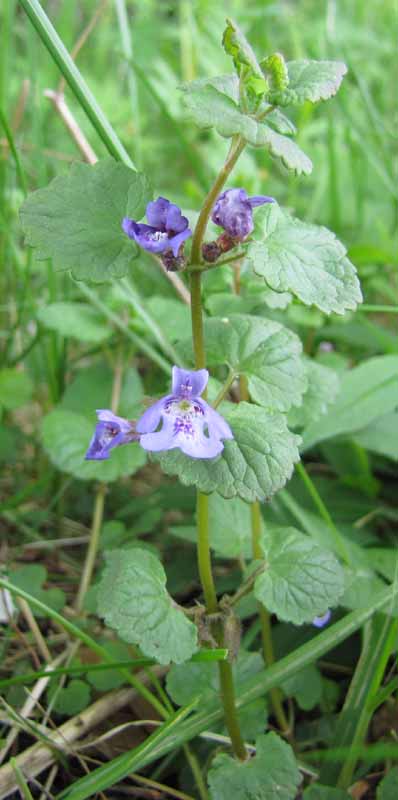
(click on image to enlarge)
Lycopus (water-horehound)
[information to be added]
Lycopus americanus (American water-horehound) - [information to be added]
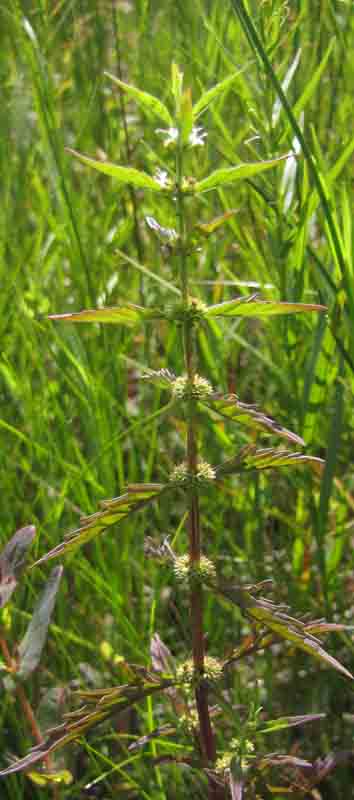
(click on image to enlarge)
Lycopus uniflorus (northern water-horehound) - [information to be added]
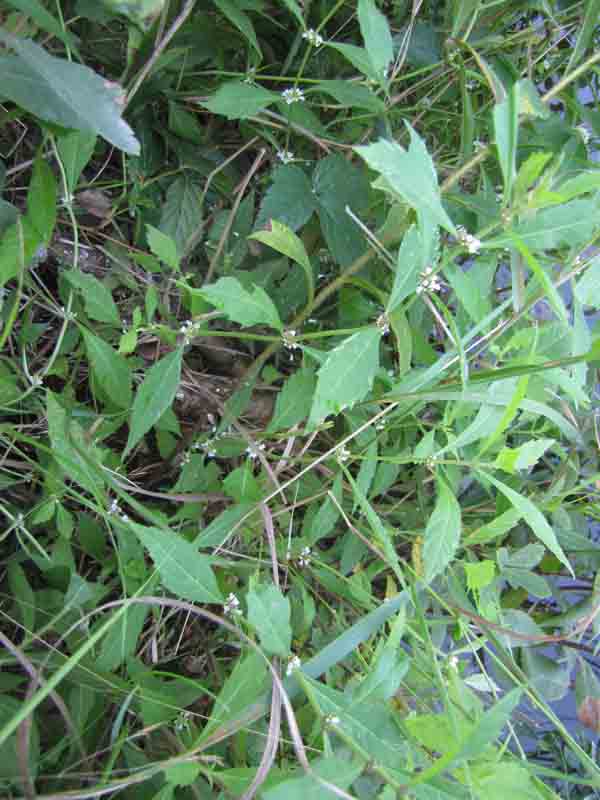
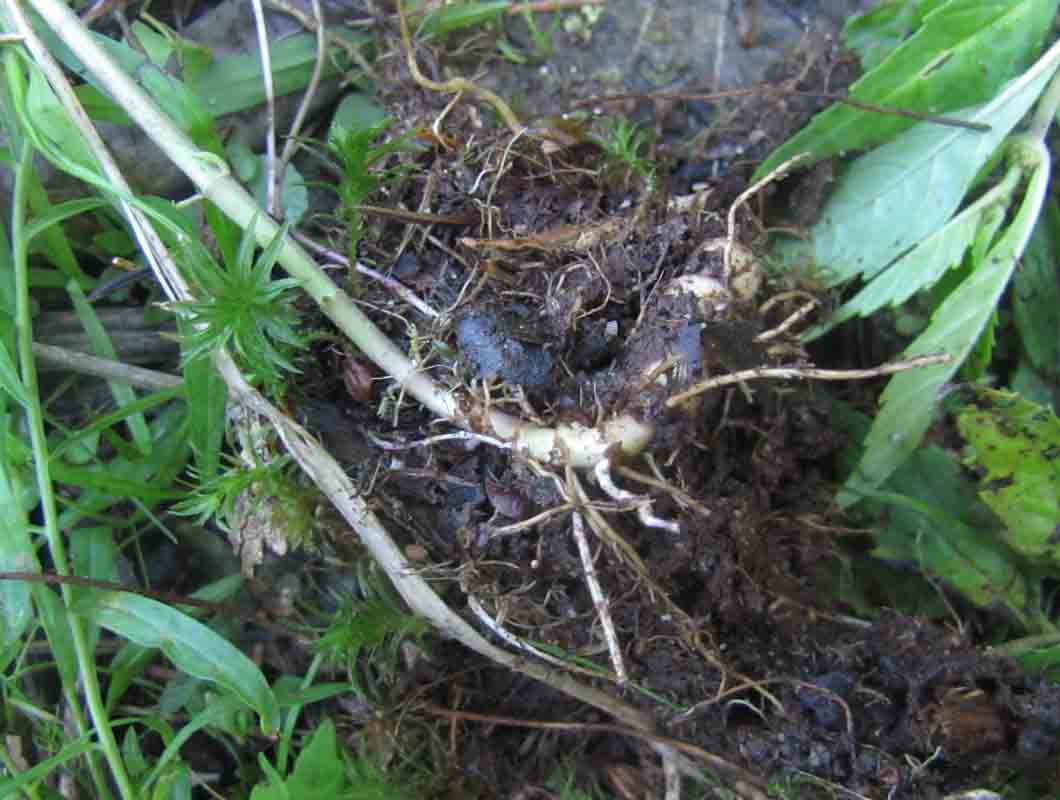
(click on an image to enlarge)
Mentha (mint)
[information to be added]
Mentha arvensis (ginger mint) - [information to be added]
Prunella (selfheal)
[information to be added]
Prunella vulgaris (common selfheal) - [information to be added]
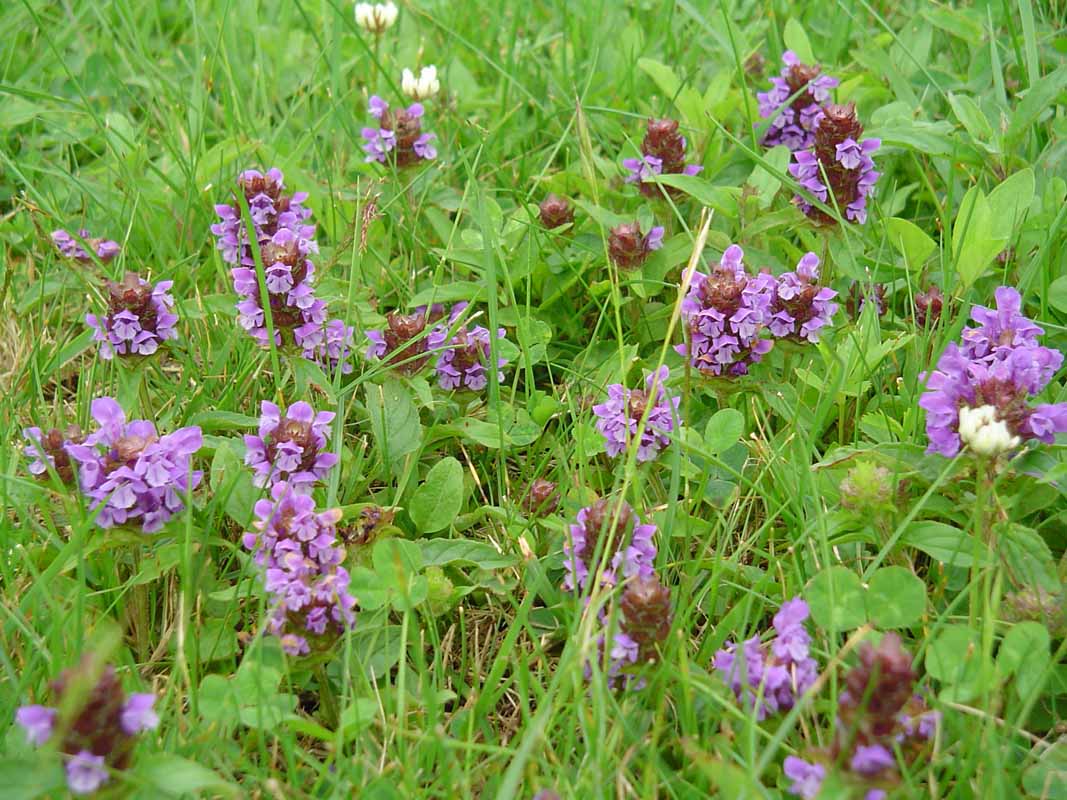
(click on image to enlarge)
Scutellaria (skullcap)
[information to be added]
| habitat | flower length | petal color | |
| Scutellaria galericulata | sea beaches, wet thickets | 15–22 mm | blue to purple |
| Scutellaria lateriflora | wet thickets | 5–9 mm | light blue |
Scutellaria galericulata (hooded skullcap) - [information to be added]
Scutellaria lateriflora (mad dog skullcap) - [information to be added]
Stachys (hedge-nettle)
[information to be added]
Stachys palustris (marsh hedge-nettle) - [information to be added]
Teucrium (germander)
[information to be added]
Teucrium canadense (American germander) - [information to be added]
Thymus (thyme)
[information to be added]
Thymus pulegioides (lemon thyme) - [information to be added]
Note:
1. Frequency designations are from the paper “Vascular flora of the Acadia National Park region, Maine” by Craig W. Greene, Linda L. Gregory, Glen H. Mittelhauser, Sally C. Rooney, and Jill E. Weber, published in the spring 2005 issue (vol. 107, No. 930) of Rhodora: Journal of the New England Botanical Club.